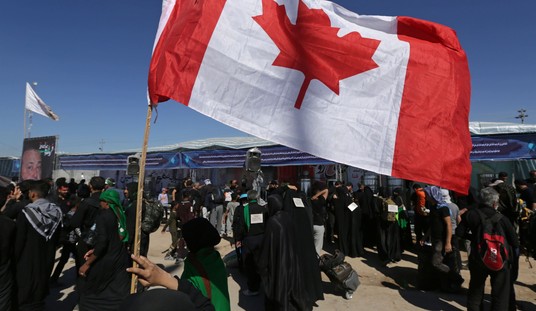The sudden withdrawal of Abdullah Abdullah from a runoff election against Hamid Karzai in Afghanistan has people scratching their heads. Abdullah himself cited security concerns in withdrawing from the race after fighting to have election irregularities recognized in Karzai’s apparent attempt to falsify the first round’s results. However, Asia Times reports today that the US negotiated Abdullah’s withdrawal as a way to negotiate with the Taliban and retreat from Afghanistan:
Abdullah Abdullah, who this week withdrew from the presidential election runoff in Afghanistan, thereby handing victory to the incumbent, Hamid Karzai, did so under pressure from the United States, Asia Times Online has learned.
In exchange for the pullout of the non-Pashtun Abdullah, Pakistan’s military has agreed to actively mediate between Washington and the Taliban over a reconciliation plan that will allow the US to exit from Afghanistan, as it is doing in Iraq, with a semblance of success. …
Apart from other senior officials, Clinton met with the chief of army staff, General Ashfaq Parvez Kiani, and the director general of Inter-Services Intelligence, Lieutenant General Ahmad Shuja Pasha. It was agreed that all US-led negotiations with Abdullah, which included offering him the position of chief executive officer of Afghanistan, would stop, and Karzai would get full backing for a second five-year term.
It was also acknowledged that Washington’s political leadership, like the Pentagon, now accepts that the Taliban-led insurgency in Afghanistan is best tackled with contact between the Pakistan armed forces and the Taliban, and not by the political governments of the region.
Clinton’s visit came at a crucial time as Pakistan is engaged in a battle against the Pakistani Taliban and other militants; if it fails, there will be a cascading effect in the whole region and a sure defeat of American interests in Afghanistan.
Color me a bit skeptical on this front. Karzai is certainly a Pashtun, but he’s no darling of the Taliban. Karzai has been battling the Taliban every day since taking office, and his life has been threatened on a number of occasions by assassination plots and a couple of attempts. If the Taliban come back to power, Karzai is a dead man walking, and he knows it.
Nor does the Pakistani military appear to be a credible arbiter of peace negotiations, especially now when they’re in the middle of a large offensive against the Pakistani Taliban on their side of the border. The ISI could fill that role, given their well-known sympathies for the Taliban and the heavy infiltration of Islamists within the intelligence agency. But the deal the Asia Times describes sounds more like the US decided to leave Karzai in place to keep fighting the Taliban, not to retreat.
People tend to confuse Pashtun with Taliban; the Obama administration does this frequently when they speak of “moderate Taliban,” a mythical strain not found anywhere in reality. If the US wants to split the Pashtun from the Taliban in order to generate a duplicate of the Anbar Awakening from Iraq — where native Sunnis fought against al-Qaeda and Sunni insurgents switched sides — then having a Pashtun in charge makes a lot of sense. That would allow the US to have a smaller footprint eventually while marginalizing Mullah Omar and his band of lunatics. The withdrawal of Abdullah and his reported sympathies with India makes it easier for Pakistan to partner with the US and Karzai in that effort, too.
Asia Times knows better than to confuse Pashtun with Taliban, which is why this reporting is noteworthy, but their take on this development makes no sense otherwise. If the US did push Abdullah out of the picture, then we’re still playing long ball in Afghanistan, not looking for a quick exit.








Join the conversation as a VIP Member